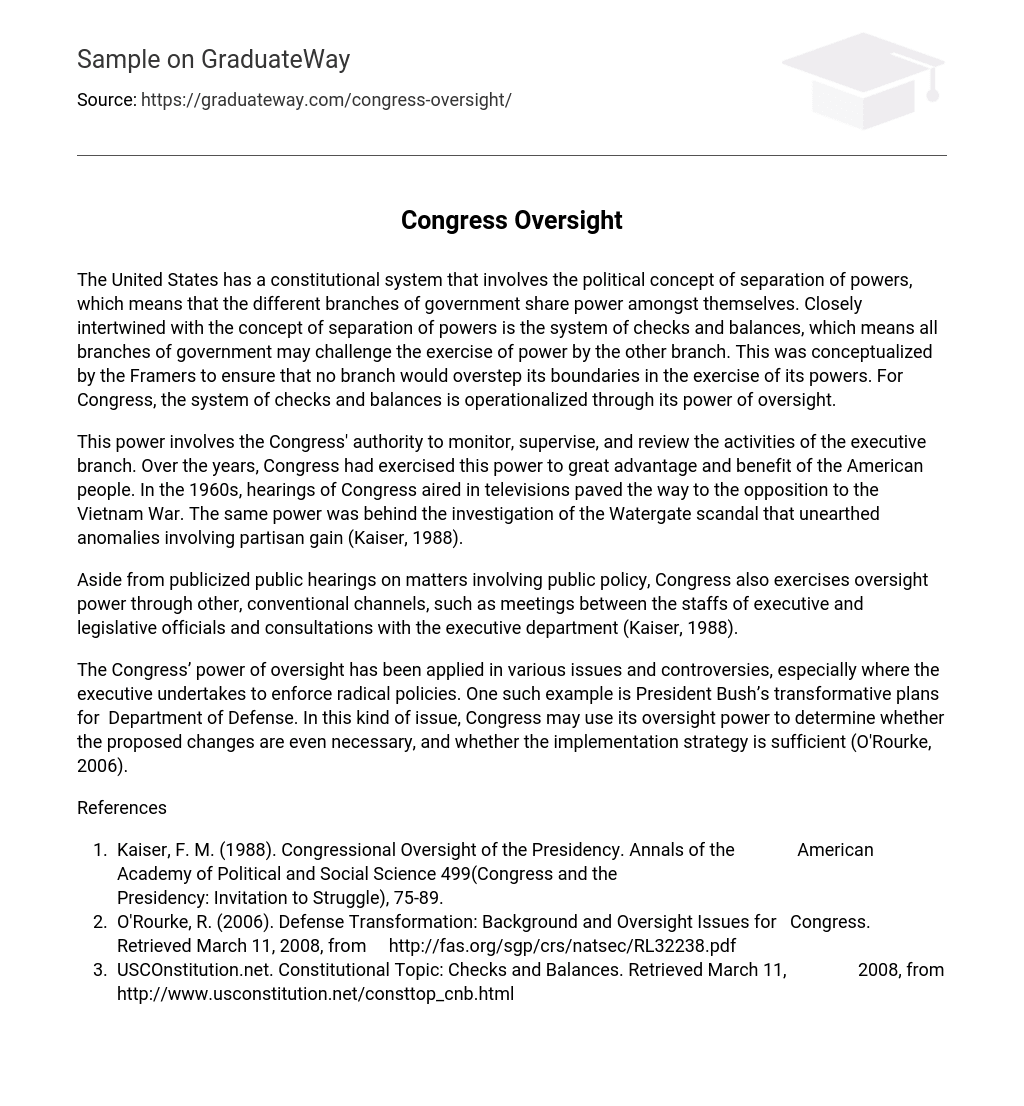The United States has a constitutional system that involves the political concept of separation of powers, which means that the different branches of government share power amongst themselves. Closely intertwined with the concept of separation of powers is the system of checks and balances, which means all branches of government may challenge the exercise of power by the other branch. This was conceptualized by the Framers to ensure that no branch would overstep its boundaries in the exercise of its powers. For Congress, the system of checks and balances is operationalized through its power of oversight.
This power involves the Congress’ authority to monitor, supervise, and review the activities of the executive branch. Over the years, Congress had exercised this power to great advantage and benefit of the American people. In the 1960s, hearings of Congress aired in televisions paved the way to the opposition to the Vietnam War. The same power was behind the investigation of the Watergate scandal that unearthed anomalies involving partisan gain (Kaiser, 1988).
Aside from publicized public hearings on matters involving public policy, Congress also exercises oversight power through other, conventional channels, such as meetings between the staffs of executive and legislative officials and consultations with the executive department (Kaiser, 1988).
The Congress’ power of oversight has been applied in various issues and controversies, especially where the executive undertakes to enforce radical policies. One such example is President Bush’s transformative plans for Department of Defense. In this kind of issue, Congress may use its oversight power to determine whether the proposed changes are even necessary, and whether the implementation strategy is sufficient (O’Rourke, 2006).
References
- Kaiser, F. M. (1988). Congressional Oversight of the Presidency. Annals of the American Academy of Political and Social Science 499(Congress and the
Presidency: Invitation to Struggle), 75-89. - O’Rourke, R. (2006). Defense Transformation: Background and Oversight Issues for Congress. Retrieved March 11, 2008, from http://fas.org/sgp/crs/natsec/RL32238.pdf
- USCOnstitution.net. Constitutional Topic: Checks and Balances. Retrieved March 11, 2008, from http://www.usconstitution.net/consttop_cnb.html





